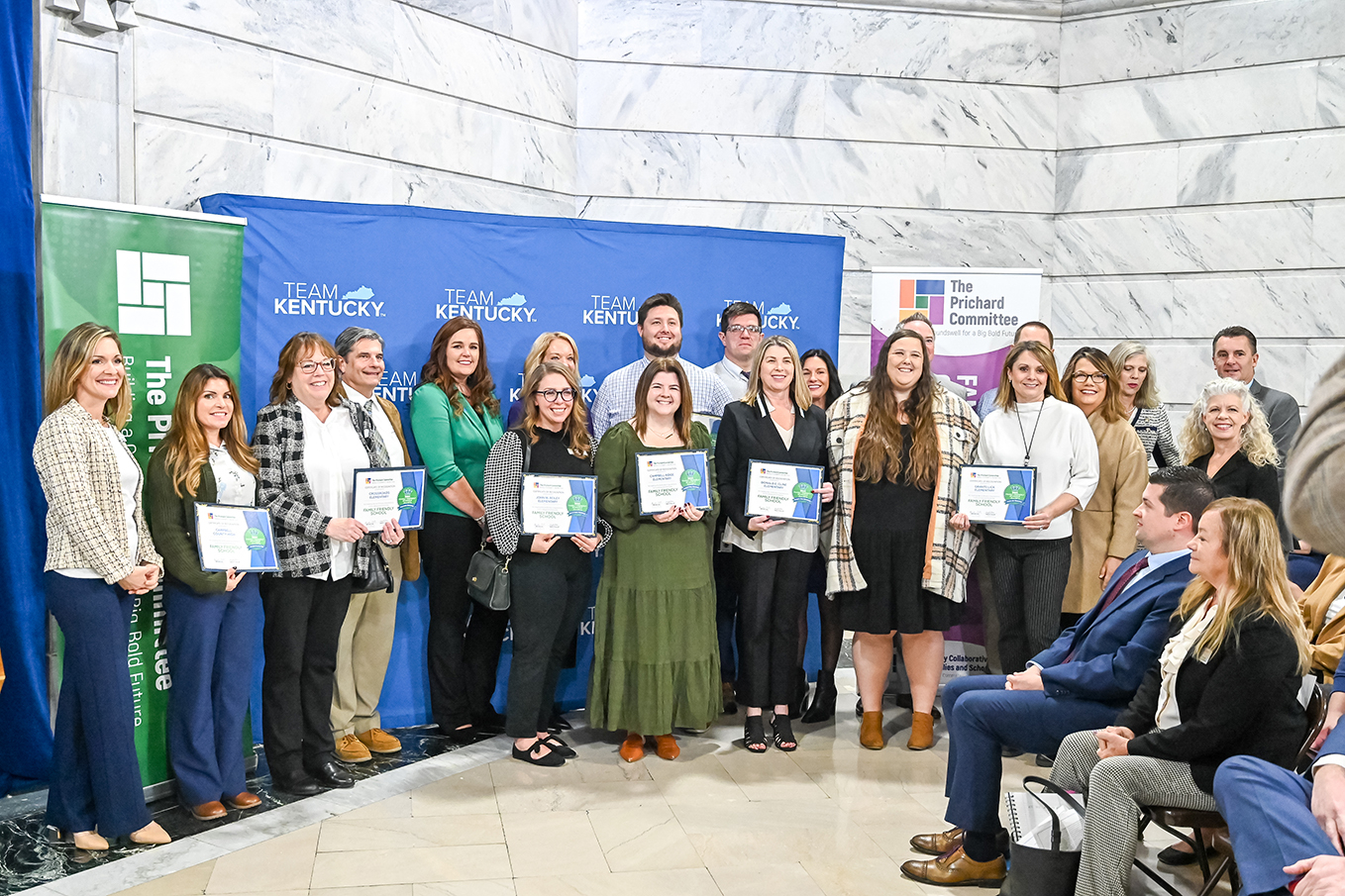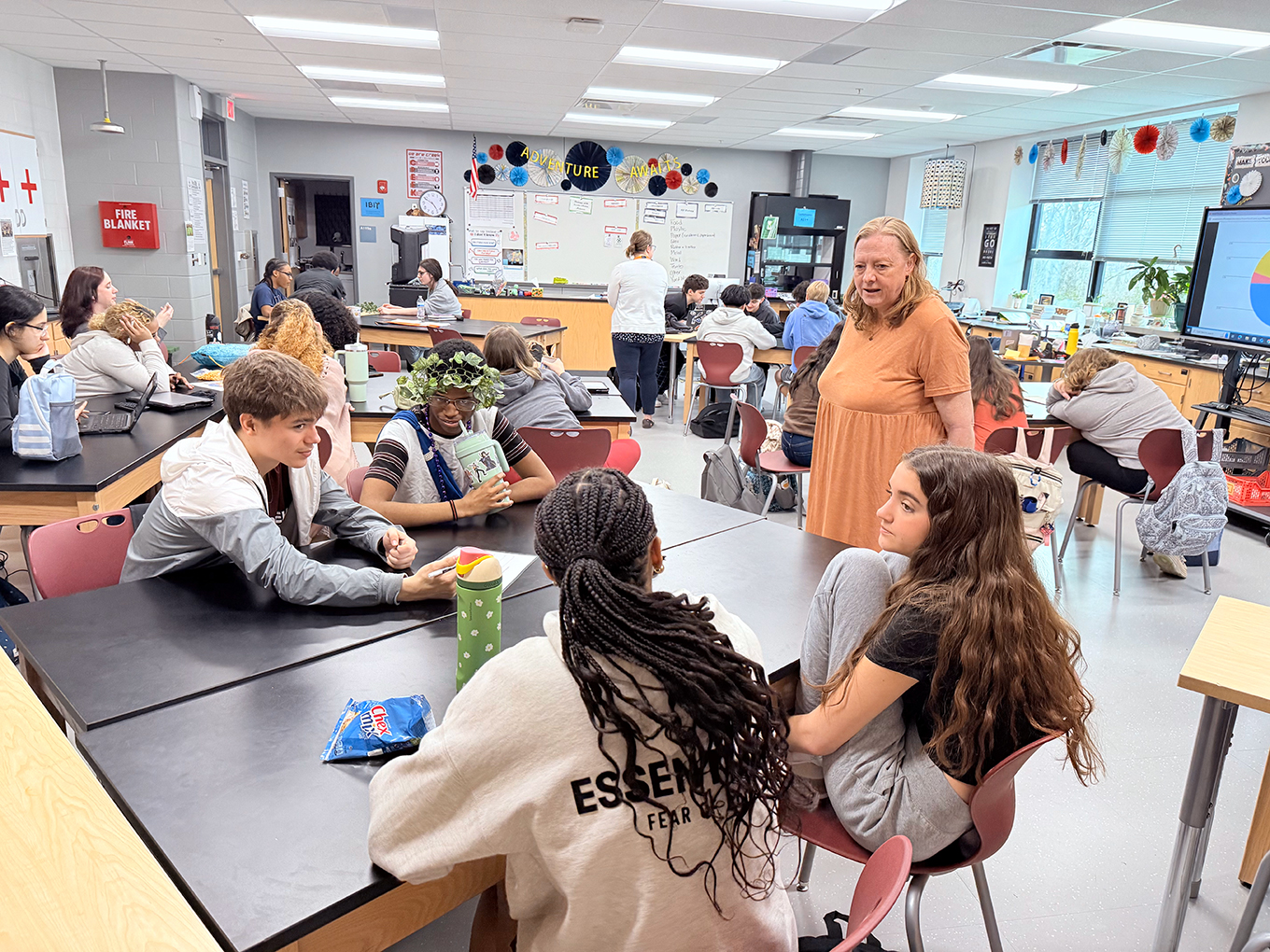
Ashley Lamb-Sinclair
By Ashley Lamb-Sinclair
ashley.lamb-sinclair@education.ky.gov
Kentucky’s Education Commissioner Stephen Pruitt often says, “Nothing in education fails at the vision stage, but in implementation.” From my experience, he could not be more right.
I’ve experienced this myself with one group of students who, in particular, I feel like I have failed.
I refer to these 20 students as my Connect class, a term I coined for what I envisioned our year together would be – connecting and building community. The Connect class was inspired by Brent Peters and Joe Franzen at Fern Creek High School in Jefferson County. These two amazing teacher leaders have an undying passion for food, gardening and cooking, and they have integrated those passions into an interdisciplinary class called Food Literacy.
I rounded up an administrator and a colleague, and we spent a day visiting Brent and Joe’s program. We could not believe how innovative and intentional their classes were. They have a full kitchen, year-round garden with a greenhouse, and chickens! And the integration of those projects into their standards-based core curriculum was seamless. These guys had nailed both a clear vision and laser-focused implementation.
My colleagues and I set about developing a version of their class for our school. We spent a year developing the course, we planted a small raised bed garden in the spring and I took on the project of creating a program that would reconnect kids to school starting the following summer by using the garden and cooking as a catalyst for community building. I just kept remembering the beauty of Joe and Brent’s program, and told myself we would be there in no time. I believed wholeheartedly in my vision.
But my implementation was rocky at best.
I won’t go into all of the problems of the course, but let me just say, that it was a far cry from Brent and Joe’s beautiful program. I rebooted every week. I would start something, see it crash and stop abruptly. It was exhausting for me and confusing for the kids. I didn’t consider unintended consequences and I didn’t plan for them.
I still worry about these kids every single day.
But what teacher hasn’t experienced this in some way? We’ve all created lessons that we thought would be just beautiful in action, but crashed and burned soon after starting. Most of us know all too well the consequences of the unsuccessful implementation of our visions. It is so easy to get swept away in excitement at the idea stage, and really difficult to clean up the mess when it tumbles to the ground.
As a state, we have the opportunity for a refined vision of education. The Every Student Succeeds Act (ESSA) means new possibilities for us. But as a recent burn victim still nursing the wounds of my failure, I can say undoubtedly that we should be careful of losing ourselves in possibility and forget to start with realities.
Let’s not be tempted by a seemingly blank canvas and start throwing on paint just because we can. Successful implementation means starting with the lines already drawn, while still imagining the masterpiece it could become. The root of the most successful programs in education keep in mind what’s truly best for kids. No one knows how to do this more than classroom teachers. Brent and Joe nailed this, but I forgot this very important lesson by trying to implement a great idea that worked well elsewhere into a completely different environment without proper planning.
When I built my Connect class, I built it imagining Brent and Joe’s class, not mine. My intentions were good; I wanted to improve the lives of my students. But my kids weren’t theirs and I am not Brent and Joe. I tried a one-size-fits-all model and my kids had to pay for it.
If we want to implement policies effectively, we have to start with the people who live them. For education policies, this means students and their teachers.
The commissioner was right in his State of K-12 Education address – it takes courage to be patient. I wanted Fern Creek High’s food literacy program right away, but I wasn’t brave enough to be patient and do it right, instead of right now. Currently, there is an urgent need in our schools to close the gaps and reach struggling learners, but if we rush our visions, we risk doing our students more harm than good. We can have the greatest ideas in the world, but what good does it do to never see them successfully implemented?
I’ve learned my lesson. I intend to do it right next time around. It’s important that policymakers and the education community at large does as well.
Ashley Lamb-Sinclair is the 2016 Kentucky Teacher of the Year, a National Board certified teacher and is in her 10th year of teaching. She has taught in Fayette and Jefferson counties and now teaches English and creative writing at North Oldham High School (Oldham County). She currently is on sabbatical from her classroom and working at the Kentucky Department of Education.




Leave A Comment